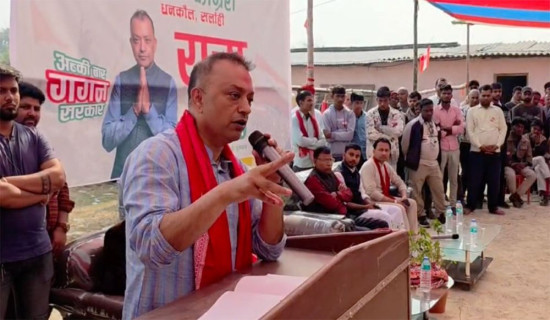- Friday, 13 February 2026
Protect Consumer Rights
With the onset of the festive season, the Nepali consumer market always turns imbalance. Consumers are left in the lurch when prices of consumer goods and services increase exorbitantly. Common people, especially low-income ones, often find major festivals like Dashain and Tihar as a misery because it is difficult for them to manage expenses. As artificial shortages of essential goods are created, consumers are forced to make subpar purchases. Profit-mongers are found taking undue advantages of poor supply of daily consumer items. They also get involved in cartelling of goods and services while others exploit consumers by creating market monopoly.
Such a situation leads to a significant rise in the number of consumer complaints and conflicts. Taking such likely anomalies in view, the government authorities are seen carrying out marketing monitoring on the eve of these festivals. But those interventions are not found to be so effective in dealing with the problems. Amidst this scenario, forming a consumer court is essential. Such an institutional development could be instrumental in protecting consumer rights.
In Article 44, the Constitution of Nepal clearly highlights consumer rights as a major fundamental right. The constitutional provision ensures that every consumer is able to access quality goods and services. In line with the spirit of the constitution, the federal parliament enacted the Consumer Rights Protection Act six years ago. The Act envisages establishing a consumer court. But it has yet to be formed. The Supreme Court had directed the government to establish consumer courts in all seven provinces so as to safeguard consumers’ interests amidst increased cases of unfair market practices.
However, only recently the government has moved ahead with establishing the much-needed consumer court. The court will mainly focus on compensation to consumers, crime against consumers with three years in jail and cases regarding goods and services. If any businessmen are found selling substandard and unhealthy products and involved in black-marketing, the three-member court will have the authority to probe the matter and punish the guilty.
Loopholes are utilised to scam consumers and make easy money. Such practice has completely deregulated the consumer market. Recently, news reports highlighted the hike in food prices. The prices of rice, edible oil and legumes have soared up. Market monitoring has not been stringent enough to nib larger trading companies when it comes to ensuring reasonable price, quality and quantity of goods. With a flooding growth in e-commerce business in the country, consumers are found more susceptible to becoming victims of fraudulent activities. Consumer rights groups must be proactive in advocating for consumer rights, providing them with support when needed.
To encourage more people to participate in controlling bad market practices, the prevalent law also provisions rewarding those individuals who provide necessary information on cases of malpractices. Now that the government has forwarded the process of forming a consumer court, consumers have heaved a great sigh of relief. Their plights are expected to be better addressed. The concerned authorities must be more active when it comes to ensuring consumer rights protection. Also, it is equally important for consumers to be more conscious about market abnormalities as well as their rights. Hopefully, the proposed consumer court will prove to be effective in tackling market issues.
















-original-thumb.jpg)
